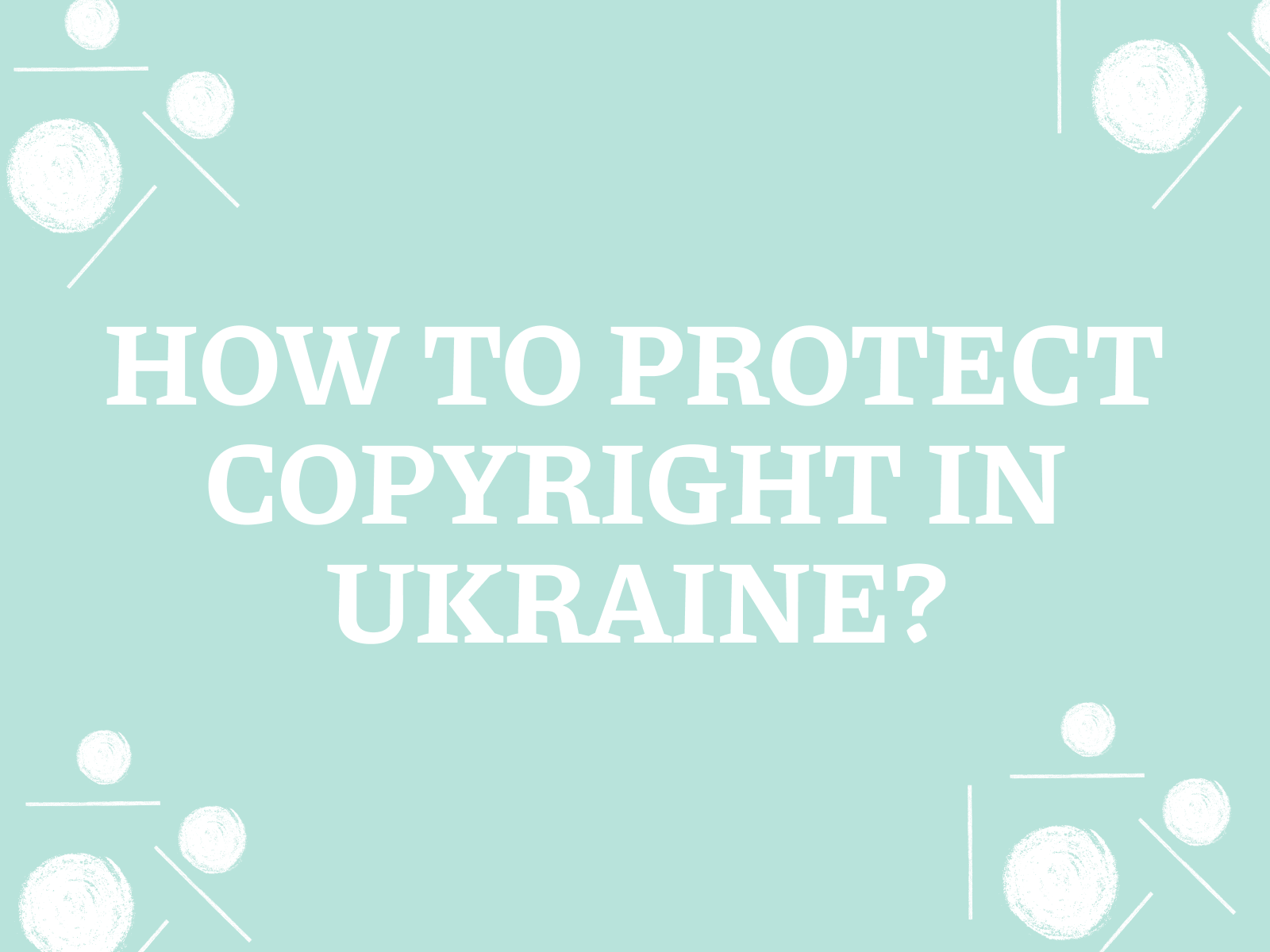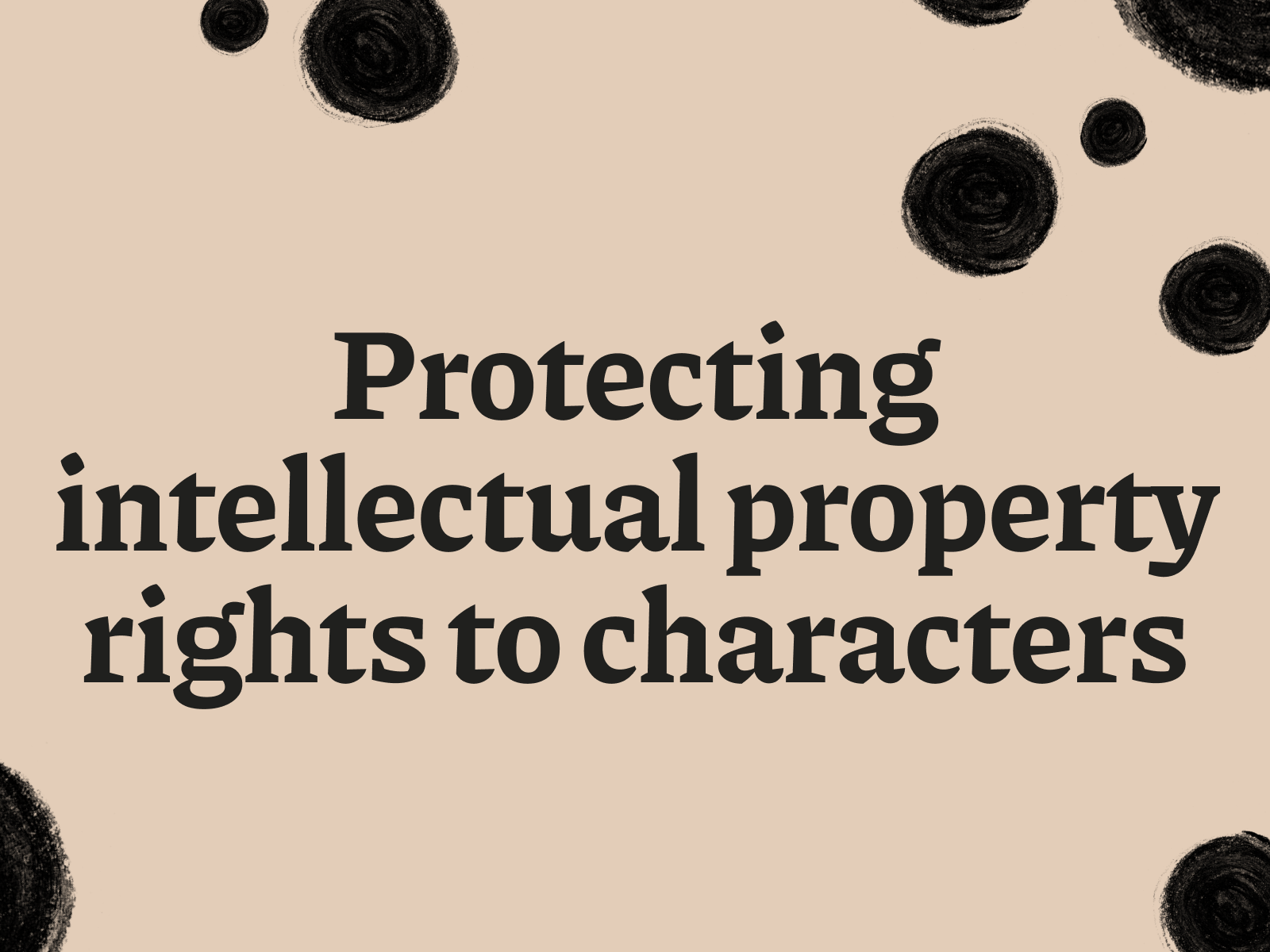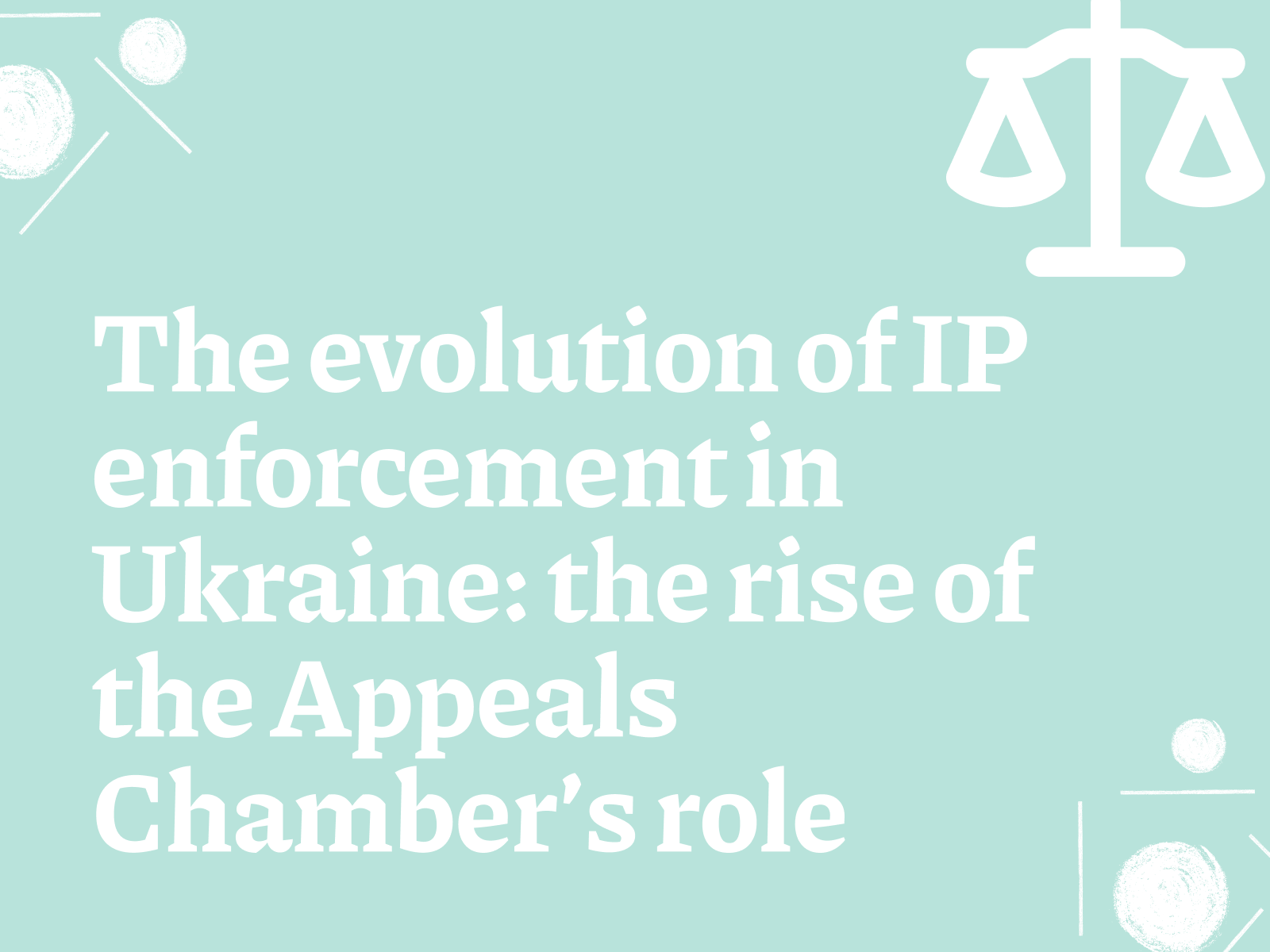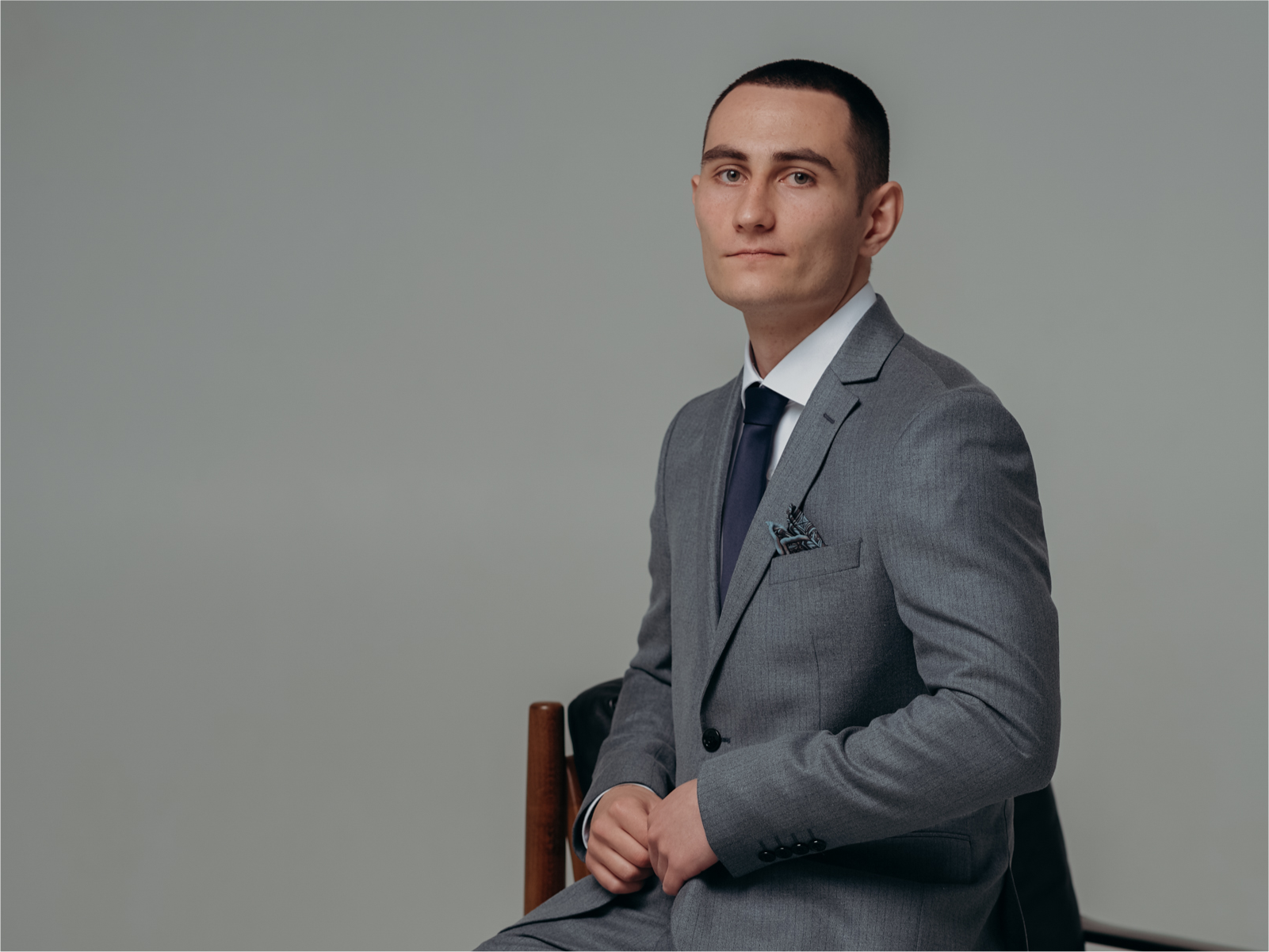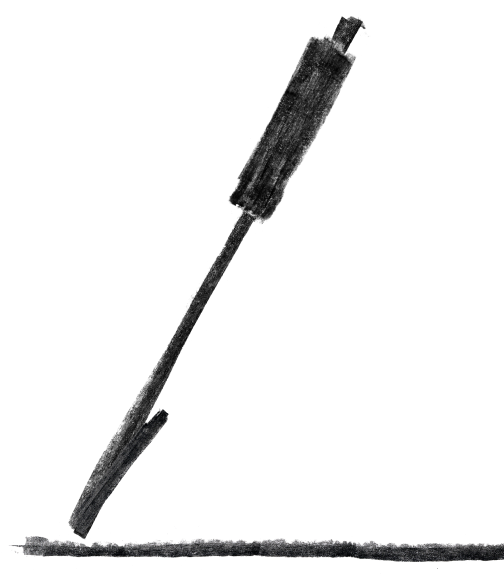Your creativity has value! Copyright is a tool to help you protect your ideas and get recognition for your work. Registering your copyright and obtaining a copyright certificate are important steps to ensure that your intellectual property is legally protected.
In this article we will review the main aspects of copyright in Ukraine, tell you how to register copyright and how to protect your rights in case of infringement.
What is copyright and how does it work in Ukraine?
Copyright is a set of legal norms regulating relations related to the creation and use of works of science, literature and art. It is a key instrument of intellectual property protection, which guarantees authors exclusive rights to use their works and receive remuneration for it.
The objects of copyright may be the most diverse results of creative activity expressed in objective form. These include:
- Literary works: books, articles, poems, scripts, computer programmes, etc.
- Musical works: songs, symphonies, operas, musical arrangements.
- Art works: paintings, sculptures, graphics, photographs, architectural projects.
- Audiovisual works: films, TV programmes, video clips.
- Scientific works: articles, monographs, dissertations.
- Databases: ordered collections of data available in electronic or other forms.
- Other works: maps, drawings, blueprints, plans, sketches, plastic works, and the like.
The main legislative act regulating copyright issues in Ukraine is the Law of Ukraine “On Copyright and Related Rights”. This law defines:
- The exclusive rights of the author:
-
-
- The right to reproduce the work.
- The right to distribute the work.
- The right to public display of the work.
- The right to import the work.
- The right to translate a work.
- The right to revise, adapt, arrange and otherwise transform the work.
- Property rights: the right to receive remuneration for the use of the work, in particular:
- Copyright remuneration: payment for the use of a work paid to the author or his assignees.
- Royalty: periodic payments to the author for each use of his work.
-
- Non-property rights:
-
- Right of publicity: the right of the author to decide whether and how the work will be publicised
- The right to recognition of authorship.
- Right to Name: the right of the author to demand that his name be mentioned on the work or in its use.
- Right to inviolability of the work: the right of the author to prohibit any alteration or distortion of the work which may prejudice his honour and reputation.
A copyright certificate is a document that is issued by a government agency and confirms authorship and exclusive rights to a work. Obtaining an author’s certificate is not mandatory for the emergence of copyright, which arises from the moment of creation of the work. However, the certificate greatly facilitates the process of proving authorship and defending one’s rights in case of their infringement.
Copyright is an integral part of intellectual property law. Intellectual property law also includes:
- Patent law: protects inventions, utility models and industrial designs.
- Right to trade marks: protects designations used to identify goods and services.
- Right to trade secrets: protects confidential information of commercial value.
- Right to topographies of integrated circuits: protects the three-dimensional arrangement of elements of an integrated circuit.
- Right to plant varieties: protects new plant varieties.
Intellectual property right stimulates innovation and creativity, contributes to the development of the economy and cultural life of society.
How to register copyright in Ukraine?
Copyright registration is the process of formally recognising authorship and fixing exclusive rights to a work. Although copyright arises from the moment the work is created, registration offers a number of advantages:
- Simplifying Proof of Authorship: a copyright certificate is an official document that confirms your authorship and the date of creation of the work.
- Plagiarism protection: copyright registration makes it difficult for unauthorised use of your work.
- Compensation options: if your copyright is infringed, having a certificate makes it easier to seek compensation for damages.
The process of copyright registration in Ukraine is quite simple and consists of the following steps:
- Preparation of Documents:
- Application for copyright registration.
- A copy of the work: paper or electronic.
- Document confirming payment of the state duty.
- Power of attorney: if the registration is carried out by the author’s representative.
- Submission of documents: documents can be submitted in person or sent by mail to the State Intellectual Property Service of Ukraine.
- Application review: application review period is 2 months..
- Receipt of the certificate: in case of a favourable decision, the applicant is issued a copyright certificate.
The cost of copyright registration depends on the type of work, the method of filing, and other factors. Additional costs may include:
- Payment for the services of a patent attorney: if you decide to use the services of a specialist to prepare and file documents.
- Notarisation of documents: in some cases it may be necessary to notarise copies of documents.
Copyright registration is an investment in protecting your intellectual property and securing your rights as an author.
How do you protect your copyrights?
Copyright infringement is unfortunately quite common and can cause significant damage to authors and copyright holders. The most common types of infringement include:
- Violation of the terms of licence agreements: use of works in breach of the terms of the licence, e.g. commercial use of works intended for personal use
- Piracy: the illegal copying and distribution of works without the author’s or copyright holder’s permission. This can apply to both physical media (books, discs, films) and digital content (music, films, software).
- Plagiarism: using someone else’s work or part of it under one’s own name without attributing the source or authorisation of the author. It can be either direct copying of a text or paraphrasing or borrowing ideas.
- Counterfeiting: the production and distribution of counterfeit works that are passed off as originals. This applies to both tangible objects (paintings, clothing, accessories) and digital content.
- Unlawful use of works on the Internet: posting works on websites, social networks or file-sharing services without the author’s or copyright holder’s permission. This can include publishing texts, photos, videos, music and other content.
Liability for copyright infringement may be civil, administrative or criminal, depending on the severity of the infringement and the presence of intent. The author or right holder whose rights have been infringed has the right to demand:
- Cessation of infringement: removal of illegal copies of the work, prohibition of further use of the work, withdrawal of the infringing products from circulation.
- Compensation for damages: compensation for material damage caused by the breach, including lost profits and the costs of defending one’s rights.
- Compensation for moral damage: compensation for moral suffering caused by humiliation of the author’s honour, dignity and business reputation.
Intellectual property and copyright protection is a complex process that requires not only knowledge of the law, but also experience and a strategic approach. law firm Polikarpov Law Firm offers a wide range of copyright protection services, including:
- Copyright advice: our lawyers will help you understand the intricacies of the law, assess the risks and determine the best strategy to protect your rights.
- Attorney dispute resolution: we will attempt to resolve the dispute with the offender amicably through negotiation and settlement. This may be a more efficient and cost-effective way of resolving the conflict than litigation.
- Litigation Defence: if necessary, our lawyers will represent your interests in court and seek damages, termination of the breach and other liability measures against the breaching party.
- Internet Copyright Protection: we can help you remove illegal copies of your works from the Internet, prosecute infringers, and prevent further infringement.
- Drafting and reviewing licence agreements: we can help you draft or review licence agreements for the use of your works to ensure that your rights are protected and you receive fair remuneration.
- Monitoring and Infringement Detection: we can help you monitor the use of your works on the Internet and identify possible copyright infringements.
Contacting a lawyer is an important step to protect your copyright and safeguard your interests as an author or copyright holder. A qualified lawyer will help you assess the situation, develop an effective defence strategy and achieve a positive result.
Conclusions
In today’s world, where information and ideas are valuable resources, copyright protection is of particular importance. Copyright guarantees creators recognition of their work, stimulates innovation and promotes the development of culture and science.
Registering your copyright and obtaining a copyright certificate is an investment in your future that provides legal protection for your works and allows you to be remunerated for their use.
Polikarpov Law Firm lawyers have in-depth knowledge of intellectual property and are ready to provide you with comprehensive legal assistance on copyright issues. We will help you:
- Understand the intricacies of copyright law.
- Register copyrights and obtain a copyright certificate.
- Protect your rights if they are violated.
- Develop and analyse licensing agreements.
- Monitor and detect copyright infringements.
Contact Polikarpov Law Firm – we will help you protect your creativity and secure your rights as an author!
What types of works are protected by copyright?
Copyright law protects a wide range of original works expressed in any objective form. Here are some of the main categories of works that fall under copyright protection:
- Literary Works:
- Books, pamphlets, articles, poems, plays, screenplays, blogs, web content and the like.
- Musings:
- Songs, symphonies, operas, musical compositions, arrangements and the like.
- Dramatic Works:
- Plays, musicals, screenplays, choreographic works, pantomimes and the like.
- Artwork:
- Paintings, sculptures, drawings, photographs, illustrations, graphic works and the like.
- Audiovisual works:
- Films, TV shows, video games, video clips and the like.
- Software:
- Computer programmes, mobile applications, databases, source code and the like.
- Other works:
- Maps, blueprints, plans, technical drawings, architectural designs, etc.
It’s important to remember:
- Originality: In order for a work to be protected by copyright, it must be original. This means that it must be the result of the author’s creative labour and not a copy or derivative work from another work.
- Fixation: The work shall be fixed in any objective form that permits its perception, reproduction or transmission.
- Ideas and facts: copyright does not protect ideas, facts, methods, techniques, systems, systems, processes, concepts, principles, discoveries or information as such. It protects only the particular form of expression of those ideas and facts.
If you are in any doubt as to whether your work falls within copyright protection, we recommend that you seek advice from a lawyer specialising in intellectual property.
What should I do if I find that my copyright has been infringed?
Discovering an infringement of your copyright can be a frustrating experience. It is important to act quickly and decisively to protect your rights and stop illegal use of your work. Here are some steps you can take:
- Gathering evidence:
- Gather evidence of infringement: this may include screenshots of web pages, copies of the infringing work, correspondence with the infringer, etc..
- Document the date and time of the violation.
- Gather information about the offender: this may include name, address, contact details, etc..
- Addressing the offender:
- Send a letter of complaint to the infringer: in the letter, clearly state what copyright has been infringed and demand that the infringement cease. You can also demand compensation for damages.
- Consider a pre-trial settlement: in some cases it may be possible to agree with the infringer to end the infringement and pay compensation without going to court.
- Referral to a lawyer:
- If the offender does not respond to your claim or refuses to co-operate, you may need to seek legal advice.
- A lawyer specialising in intellectual property can help you assess your situation, develop a strategy to protect your rights and represent your interests in court.
- Trial defence:
- In the event of serious copyright infringement or lack of co-operation from the infringer, you may need to take legal action.
- The court may order you to stop the infringement, pay compensation, damages and other measures to protect your rights.
Remember: Copyright protection can be a complex process. It is important to act decisively and in a timely manner to protect your rights and interests.
Additional tips:
- Register your copyrights: although copyright registration is not mandatory in Ukraine, it can provide additional benefits in the event of a legal dispute.
- Use protection technologies: watermarks, digital signatures and other technologies can help protect your works from illegal copying and distribution.
- Monitor the use of your works: check the Internet and other sources regularly for illegal use of your works.
Copyright protection is an important aspect of protecting your intellectual property. By following these guidelines, you can effectively protect your works from infringement.
How can I be sure my copyright is protected?
Although copyrights arise automatically when a work is created, active action on your part can greatly enhance their protection. Here are a few steps to help you maximise your copyright protection: .
- Documentation and evidence:
- Save all documents related to the creation of the work: these can be drafts, original files, correspondence, contracts, etc.
- Date your work: this will help to establish the date of creation of the work, which is an important factor in determining authorship.
- Consider depositing the work: depositing the work with the Ukrainian Agency for Copyright and Related Rights (UAACR) or other appropriate organisation will provide official confirmation of authorship and date of creation.
- Publication and dissemination:
- Publish your work: publication in journals, books, websites or other sources can provide proof of authorship and date of creation.
- Use copyright symbols: labelling your works with the © symbol, your name and the year of creation.
- Use Creative Commons licences: if you want to allow others to use your work under certain conditions, consider using Creative Commons licences.
- Technical protection measures:
- Use watermarks: watermarks can help identify your works and make them harder to copy illegally.
- Use digital signatures: digital signatures can ensure the authenticity and integrity of your digital works.
- Monitoring and Protection:
- Regularly monitor the Internet and other sources for illegal use of your works.
- If a violation is detected, take action to protect your rights: contact the violator, engage a lawyer or go to court.
- Referral to a lawyer:
- If you have concerns about copyright protection or need help resolving disputes, contact a lawyer specialising in intellectual property.
Remember: Copyright protection is an ongoing process. By following these guidelines, you can significantly increase the level of protection for your works and secure your rights as an author.
Can I lose my copyright in a work?
Copyrights don’t last forever, and in some cases you can lose your rights to a work. Here are some scenarios that could lead to loss of copyright:
- Copyright Termination:
- In Ukraine, copyright is valid during the life of the author and 70 years after his death.After this period expires, the work enters the public domain and can be freely used without the author’s or his heirs’ permission.
- Copyright relinquishment:
- The author may knowingly relinquish his copyright by making the work available in the public domain. This may be done by publishing the work without attribution or by a specific declaration of renunciation…..
- Breach of licence conditions:
- If you use a copyrighted work under a licence, you must comply with the terms of that licence.Failure to comply with the terms of the licence may result in loss of the right to use the work.
- Improper copyright clearance:
- In some countries there is a requirement for copyright registration to obtain full protection.Failure to register may make it more difficult to protect your rights in the event of a dispute.
- Use of the work for official purposes:
- If the work was created in connection with the performance of official duties or on behalf of an employer, copyright may belong to the employer and not to the author.
- Unproven authorship:
- In the event of a copyright dispute, you may need to prove that you are the author of the work. Failure to prove authorship can result in loss of copyright.
Recommendations:
- Keep documents that prove your authorship and the date of creation of the work.
- Research the terms of licences before using copyrighted works.
- Consider copyright registration, especially for works of high commercial value.
- Contact a lawyer specialising in intellectual property if you have concerns about protecting your copyright.
Copyrights are an important tool for protecting your creativity. Understanding how you can lose your rights will help you take steps to protect them.
Can I use the © mark to protect my copyright?
Using the © mark (copyright symbol) on your work is common practice, but it is important to understand its role and limitations.
What does the © sign mean?
- The © mark is a visual indication that a work is protected by copyright. It is usually accompanied by the name of the copyright owner and the year of first publication of the work.
Is the © sign compulsory?
- In Ukraine, as in most countries of the world, the use of the © mark is not mandatory for the protection of copyright. Copyright arises automatically when creating an original work, regardless of the presence of the © mark.
Advantages of using the © mark:
- Copyright information: the © sign clearly informs others that the work is copyrighted and it is illegal to use it without permission.
- Deterrence of infringement: having the © mark can deter potential infringers, as they will know that you are aware of your rights and are willing to defend them.
- Additional evidence in the event of a dispute: although the © mark is not required, its presence may provide additional evidence that you have claimed copyright in the work.
Limitations of the © sign:
- The © symbol is not a substitute for copyright registration: in some countries copyright registration is necessary for full protection and legal recourse.
- The © symbol is not a guarantee of protection: even if you use the © symbol, your copyright may be infringed. You will still need to take steps to protect your rights in the event of infringement.
Recommendations:
- Use the © mark on your works, especially those of commercial value.
- Complete the © sign with information about the copyright owner and the year of first publication.
- Consider registering your copyright for additional protection.
While the © mark is not mandatory, its use is a recommended practice to communicate your copyright and deter potential infringers.

